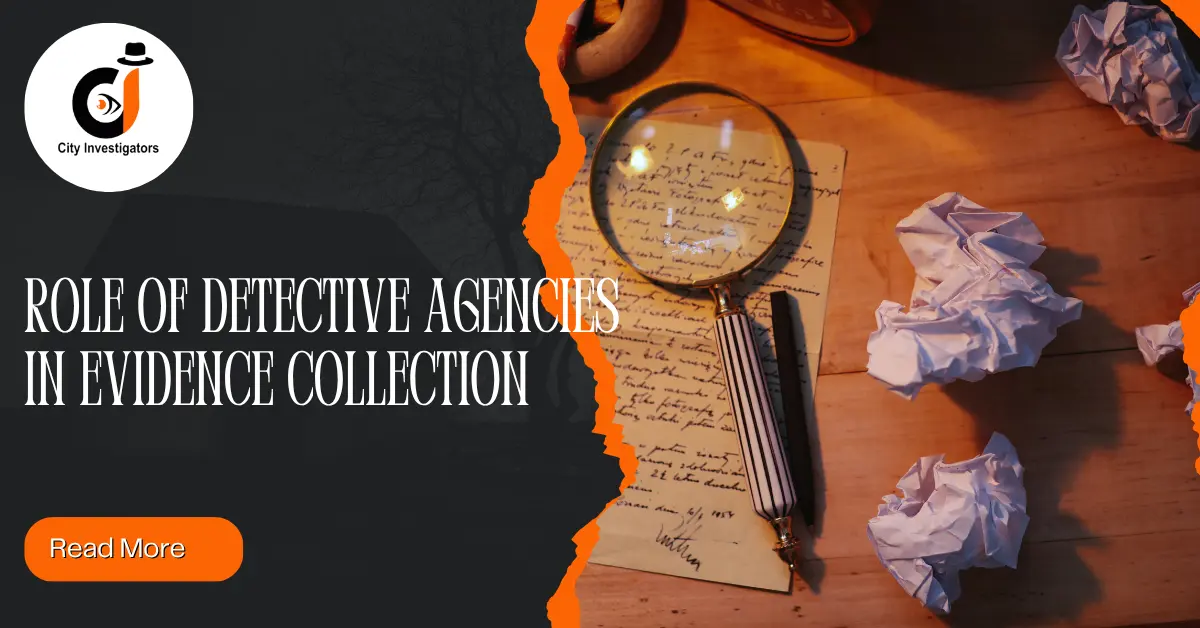Role of Detective Agencies in Evidence Collection
Role of Detective Agencies in Evidence Collection: For decades, Section 498A of the Indian Penal Code (IPC) has played a pivotal role in protecting married women from cruelty by their husband or his relatives. However, with the enactment of the Bharatiya Nyaya Sanhita (BNS), 2023, there have been significant changes in the numbering and structuring of criminal law in India. What was once Section 498A IPC has now been redefined under Section 85 and Section 86 of the BNS.
This blog explores the transformation of this legal provision, its implications, and how private detective agencies play a crucial role in gathering evidence in cases involving marital cruelty.
Section 498A IPC: An Overview
Section 498A, introduced in 1983, was designed to curb domestic violence and dowry-related harassment. It reads:
“Whoever, being the husband or the relative of the husband of a woman, subjects such woman to cruelty shall be punished with imprisonment for a term which may extend to three years and shall also be liable to fine.”
“Cruelty” includes physical or mental harassment and dowry demands.
BNS 2023: Section 85 & Section 86
With the Bharatiya Nyaya Sanhita (BNS), 2023, the Indian criminal legal system has undergone a major revamp. The BNS replaces the IPC, and Section 498A has been reclassified as:
- Section 85 – Cruelty by husband or his relatives (substantively similar to 498A IPC)
- Section 86 – Dowry death (earlier Section 304B IPC)
What’s New?
- The substance of the law remains largely the same, but BNS is designed to simplify, modernize, and make Indian criminal law more accessible.
- Procedural clarity and timelines for investigation and trial are emphasized.
- Efforts have been made to balance the rights of the accused and the complainant, given past allegations of misuse of Section 498A.
Challenges in 498A / Section 85 Cases
Although the intent of Section 498A was noble, over the years, both misuse and underreporting have been issues:
- False allegations in marital disputes to harass the husband and his family.
- Lack of concrete evidence due to most incidents occurring within the four walls of a home.
- Delayed complaints, often after the relationship breaks down irreparably.
This is where private detective agencies step in.
Role of Detective Agencies in 498A / Section 85 Investigations
Private detective agencies, while not substitutes for law enforcement, often assist clients and lawyers in gathering independent, admissible evidence. Here’s how they help:
1. Background Checks & Lifestyle Surveillance
- Agencies can verify financial status, extramarital affairs, or hidden assets.
- Surveillance can capture behaviors that support or refute cruelty or dowry demands.
2. Digital Evidence Recovery
- Investigators assist in recovering deleted messages, emails, or call records.
- This is particularly important in verifying threats, abuse, or blackmail via electronic media.
3. Witness Identification
- Often, key neighbors, staff, or relatives are unwilling to speak publicly.
- Agencies can discreetly identify potential witnesses who may later be summoned by court.
4. Counter-Investigation
- In cases where the accused claims innocence, detectives gather evidence disproving allegations, such as absence during alleged incidents, or showing a peaceful history of the relationship.
5. Pre-Litigation Support
- In many cases, detective reports help lawyers build or defend cases even before FIR is filed.
- Helps in settlement negotiations by putting factual information on record.
Legal Admissibility of Evidence
Detective agencies must operate within the bounds of law. Evidence must be collected ethically and lawfully to be admissible in court. Courts usually accept:
- Audio/video recordings (with proper authentication)
- Digital communications (retrieved legally)
- Third-party witness statements
- Surveillance logs (where privacy isn’t breached)
Understanding Section 498A of IPC and Sections 85 & 86 of BNS: Protecting Women from Cruelty
In the realm of Indian criminal law, protecting the dignity and rights of women within marriage has always been a sensitive and significant issue. Section 498A of the Indian Penal Code (IPC), introduced in 1983, has been a key legal provision in addressing cruelty by husbands or their relatives. With the introduction of the Bharatiya Nyaya Sanhita (BNS), which aims to replace the colonial-era IPC, Sections 85 and 86 now carry forward and expand on the principles of Section 498A. Role of Detective Agencies in Evidence Collection
What is Section 498A of IPC?
Section 498A deals with “cruelty by husband or relatives of husband.” Under this provision, any conduct by the husband or his family that drives a woman to commit suicide or causes grave injury to her life, limb, or health (including mental health) is punishable with imprisonment up to 3 years and a fine. Role of Detective Agencies in Evidence Collection
Importantly, cruelty also includes harassment for dowry demands—whether before or after the marriage. This section was meant to protect married women from domestic violence and dowry-related abuse. It is a cognizable (police can arrest without warrant), non-bailable, and non-compoundable (cannot be withdrawn by the complainant) offense.
However, over the years, there have been concerns about misuse of this provision in false or exaggerated complaints. Courts have responded by setting safeguards, like mandatory police investigation and attempts at reconciliation.
What is in Section 85 and 86 of the BNS?
With the implementation of the Bharatiya Nyaya Sanhita (BNS), which aims to modernize Indian criminal laws, the content of IPC Section 498A is largely retained under:
- Section 85 of BNS: This section corresponds directly to IPC 498A, criminalizing cruelty by the husband or his relatives towards a woman. It defines cruelty in similar terms, covering physical and mental harm, as well as harassment related to dowry.
- Section 86 of BNS: This section provides specific punishment guidelines or procedural details related to Section 85. It may refine the scope, add clarity on what constitutes “harassment,” or address procedural safeguards.
Conclusion
Section 498A, now Sections 85 and 86 of the Bharatiya Nyaya Sanhita, continues to be a powerful shield against domestic cruelty, but it also demands careful handling of facts and evidence. Role of Detective Agencies in Evidence Collection
Whether you’re seeking justice for genuine abuse or defending against false allegations, having reliable, verifiable evidence is key. This is where professional detective agencies become indispensable allies in the legal process. detective agency in Lucknow
Disclaimer
Engaging a detective agency in India should always be done with a trusted and licensed firm. Legal consultation is essential before relying on private investigations in court.





Nice post. I learn something totally new and challenging on websites I stumbleupon on a daily basis. It’s always exciting to read through content from other authors and practice a little something from their web sites.